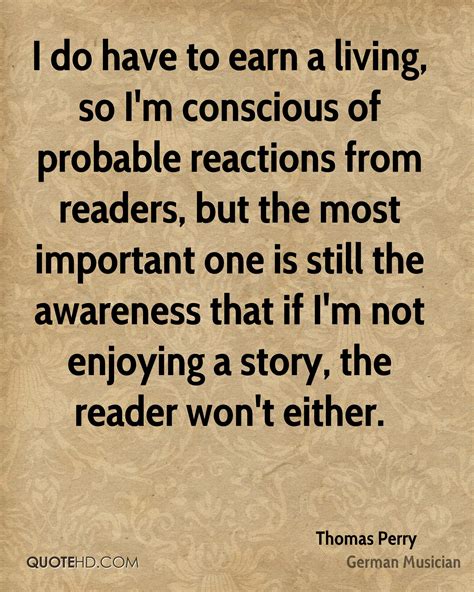A Quote by Stephen Lang
I always have a contract with a character. Even when he's unappealing. The contract is to give him his due. To tell his story. And to keep his secrets.
Related Quotes
It's a long shot, it's suicide maybe, but I do the only thing I can think of. I lean in and kiss Peeta full on the mouth. His whole body starts shuddering, but I keep my lips pressed to his until I have to come up for air. My hands slide up his wrists to clasp his. "Don't let him take you from me." Peeta's panting hard as he fights the nightmares raging his head. "No. I don't want to. . ." I clench his hands to the point of pain. "Stay with me." His pupils contract to pinpoints, dilate again rapidly, and then return to something resembling normalcy. "Always," he murmurs.
No man could bring himself to reveal his true character, and, above all, his true limitations as a citizen and a Christian, his true meannesses, his true imbecilities, to his friends, or even to his wife. Honest autobiography is therefore a contradiction in terms: the moment a man considers himself, even in petto, he tries to gild and fresco himself. Thus a man's wife, however realistic her view of him, always flatters him in the end, for the worst she sees in him is appreciably better, by the time she sees it, than what is actually there.
Locke had illegitimately selected those parts of man he needed for his social contract and suppressed all the rest, a theoretically unsatisfactory procedure and a practically costly one. The bourgeois is the measure of the price paid, he who most of all cannot afford to look to his real self, who denies the existence of the thinly boarded-over basement in him, who is most made over for the purposes of a society that does not even promise him perfection or salvation but merely buys him off.
Citizenship comes first today in our crowded world...
No man can enjoy the privileges of education and thereafter
with a clear conscience break his contract with society.
To respect that contract is to be mature, to strengthen it is to be a good citizen,
to do more than your share under it is noble.
There are three infallible ways of pleasing an author, and the three form a rising scale of compliment: 1, to tell him you have read one of his books; 2, to tell him you have read all of his books; 3, to ask him to let you read the manuscript of his forthcoming book. No. 1 admits you to his respect; No. 2 admits you to his admiration; No. 3 carries you clear into his heart.
Man had in the beginning no power of analysis or synthesis approaching that of the spider, or even of the honey-bee; he had acute sensibility to the higher forces. Fire taught him secrets that no other animal could learn; running water probably taught him even more, especially in his first lessons of mechanics; the animals helped to educate him, trusting themselves into his hands merely for the sake of their food, and carrying his burdens or supplying his clothing; the grasses and grains were academies of study.



































